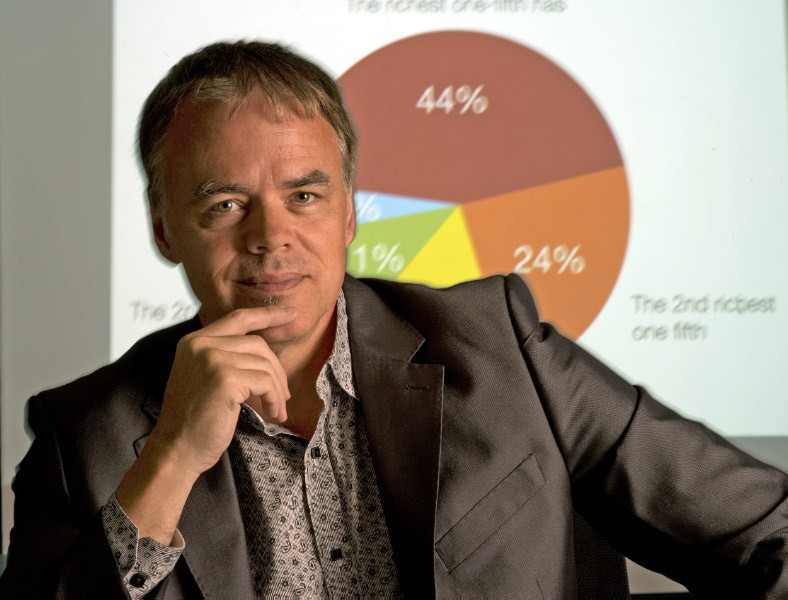Economics for all
Popular Canadian economist publishes second book
On the phone from Winnipeg to Australia, The Uniter spoke with Canadian economist, Jim Stanford, who works for Unifor – Canada’s largest private sector union. The discussion spanned from the state of current economics, to how every person contributes to the economy and what to expect from the second edition of his book, Economics for Everyone: A Short Guide to the Economics of Capitalism.
The Uniter: Are there any major changes from the first edition (published in 2008) to the second edition of Economics for Everyone (published in 2015)?
Jim Stanford: Yes, there was quite a few changes because, of course, a lot has happened in the economy since then (2008). In particular, when the first edition came out, the whole economy was melting down due to the global financial crisis during 2008 and 2009… The second edition (will) give a full description of what happened during that meltdown and its after effects.
Your book dedication reads, “Dedicated to the hard-working people who produce wealth – in hopes that by better understanding the economy, we can be more successful in changing it.” What inspired you to write that?
JS: We’re often told that economics is a technical subject, specialized – something that should be left to the experts. In my experience, we (need to) approach this subject with respect, with knowledge average working people have and communicate it in an accessible, common language rather than showing charts, graphs and formulas. Working people are very interested in how the economy functions, what work is put into (it) and what could be done to make it better.
Is it fair to say that Economics for Everyone is a mediator for those that don’t know much about economics?
JS: I think that the way economics is talked about in universities and discussed in newspapers is deliberately confusing and deliberately mysterious. The people who have the most power in our economy, that would be the wealthy, don’t want us to know about economics. They want the mysterious subject left to the experts. Economics for Everyone is supposed to be a textbook for everyone, not necessarily for university students. It’s for everyone who wants to learn about this crucial part of their lives.
What is the state of neoclassical economics at the moment?
JS: I think it’s got some serious problems. I think that a lot of practitioners of neoclassical economics recognize that. There was a famous moment in 2009 after the financial crisis – the Queen of England went to the Oxford University economics department and said, “How come none of you smart economists could see this coming? How come none of you predicted this meltdown?”
It was an interesting challenge from an unexpected source… Neoclassical economics has been a very ideological undertaking from the beginning of the 1870s. Neoclassical theorists were more intense on justifying capitalism than explaining it. Year after year after year, economic numbers have been disappointing and the neoclassical theorists don’t really have an explanation.
I believe there is a big opening right now for an alternative approach, for those of us who don’t come from that neoclassical tradition. I think our time may have come. We need to step up our arguments and our alternatives.
Published in Volume 70, Number 11 of The Uniter (November 19, 2015)







